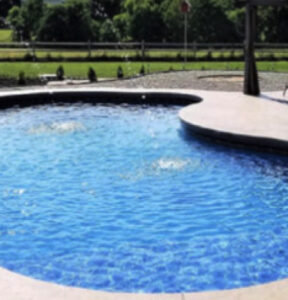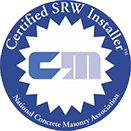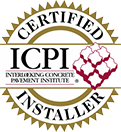
Here are some common pool chemicals, why you might need them, and how they are used.
It isn’t always keeping your pool clean. Especially when you have to bring in the use of pool chemicals, of which there are many and it can be quite confusing, especially for the novice pool owner. However, pool chemicals are also an essential part of maintaining our pools and keeping them in perfect condition. If you’re unsure of where you’ll want to start, don’t worry as we’ve got you covered. Here are some common pool chemicals, why you might need them, and how they are used.
Sanitizers
This category of pool chemicals is used to keep your water clean. They sanitize and disinfect, so it’s essential that you maintain a constant level of chlorine in your water at all times. Other chemicals in this category to be aware of are:
TriChlor comes in tabs or sticks with cyanuric acid in them. They can be added to a chlorine floater or installer in your chlorinator.
Dichlor is a granular cyanuric acid-based powder that can quickly act to chlorinate your pool, spa, or fountain.
Bromine tabs are perfect for spas and are generally better for hot water. They can be regenerated by shocking and are generally more pH stable.
Cyanuric Acid is a liquid or dry chlorine stabilizer that can protect your chlorine from damage by UV rays. Small amounts are found in dichlor or trichlor to help them work for longer.
Oxidizers
Think of your oxidizers as a secondary sanitizer, used to kill algae and bacteria that may build up in your pool. Chlorine or non-chlorine shocks can come in powdered form and it’s as simple as opening the bag and pouring it into the water.
Calcium Hypochlorite is used to give your pool a quick sanitizing by boosting chlorine and killing algae. Just remember that it works best when your pH levels are low, around 7.2.
Chlorine-Free Shock is a fast-acting powder that’s oxygen-based and burns clean without any residue. This allows you to sanitize your water and swim immediately after treatment.
Water Balancers
As any pool owner knows, maintaining the proper pH levels in your pool is important. You can test your total alkalinity every few weeks as part of your regular maintenance or whenever you suspect you may have pH troubles. You can also test your calcium hardness and cyanuric acid every month.
pH Increaser is a granular soda ash that helps increase your pH levels over 7.2 ppm.
pH Reducer is the opposite and helps lower your levels below 7.6 ppm. Sometimes also used to lower total alkalinity.
Alkalinity Increaser is used to raise your total alkalinity in the event that your levels go below 80 ppm.
Calcium Hardness Increaser is used to raise your calcium hardness levels whenever they go below 150 ppm.
Chlorine Neutralizer is used when your chlorine concentration levels become too high.
Other Pool Chemicals
There are many more kinds of pool chemicals out there, from algaecides to enzymes to phosphate removers and beyond. If you’re experiencing a specific pool problem, see if pool chemicals can help you. If you’re unsure of which chemicals to use, ask an expert; you might be surprised by how many options are out there!
Admiral Pools is Your Complete Swimming Pool Resource
Admiral Pools LLC is a multi-faceted company involved in the construction and renovation of all types of in-ground swimming pools, serving Baltimore, Harford, and Cecil Counties of Maryland and Southern Pennsylvania. Admiral Pools does the vast majority of our work with in-house personnel, and we pride ourselves on being a turnkey operation that provides retaining walls, hardscaping, fencing, and outdoor lighting. Customers can visit our retail location and showroom in Abingdon, MD, to purchase pool chemicals, as well as above-ground pools, spas, parts, maintenance equipment, pool games, and toys. Admiral Pools of Maryland is dedicated to providing our customers with the highest quality swimming pools, the best service, and a complete selection of parts and chemicals the retail industry has to offer. Contact Admiral Pool’s representative through our website today to receive your free quote, or call us at 1-866-297-POOL (7665). Follow us on Facebook, Instagram, LinkedIn, Twitter, and Pinterest for all of the latest updates and news in the recreational water industry.




